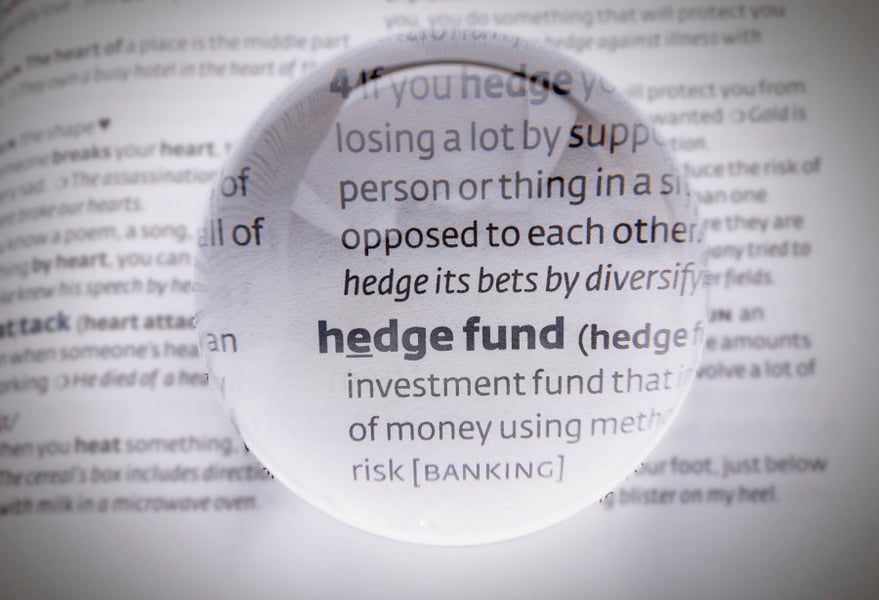Hedge funds endured a bad quarter ended Sept. 30 and might chalk up one of the worst collective 12-month performance records in recent memory by year-end, reports from eVestment and other hedge fund trackers show.
“For many in the hedge fund industry, 2015 is shaping up as the worst year since 2011, if not since 2008,” said eVestment researchers in their third-quarter hedge fund investment review.
Hedge fund aggregate performance within eVestment's hedge fund database as of Sept. 30 was down 4.1% for the past three months and down 2.4% for nine months.
eVestment's report didn't provide hedge fund returns for 2011 and 2008, but according to Hedge Fund Research's third-quarter report, the HFRI Fund Weighted Composite index returned -5.3% in 2011 and -19% in 2008.
OUTPERFORMING EQUITY
“One primary difference between 2015 and 2011 is many major markets produced positive returns in 2011, more so on the credit side, and the hedge fund industry was generally perceived to have lagged significantly. In 2015, the industry is mostly outperforming equity, multiasset, commodity and regional/country specific (indexes),” said eVestment analysts in their latest report.
By comparison, returns of major market indexes for the three-month and nine-month periods ended Sept. 30 were: S&P 500, -6.4% and -5.3%; MSCI World ex-U.S., -11.1% and -8.7%; and Barclays U.S. Aggregate Bond, 1.2% and 1.1%.
Analysts at Preqin agreed about the potential for very poor hedge fund performance by the end of this year.
“This is the fourth consecutive month of negative returns for hedge funds, the longest negative period since June-November 2008. Overall returns for 2015 year-to-date (of the Preqin All-Strategies Hedge Fund Benchmark) now stand at only 0.18%, with the year on course to have the lowest returns since 2011,” said Preqin researchers in an e-mail accompanying September hedge fund data.
Returns of the HFRI Fund Weighted Composite also were negative for periods ended Sept. 30 at -3.8% for the quarter and -1.4% for nine months.
One result of rockier global market conditions is that “hedge fund performance dispersion also recently expanded, with a combination of categorical strategy characteristics, including net exposure, leverage, sector concentration and idiosyncratic positions contributing to large differentiation between the best- and worst-performing funds,” said Kenneth J. Heinz, president of HFR, in a summary of the firm's latest quarterly report.
Christine Williamson is a senior reporter at sister publication Pensions & Investments.







